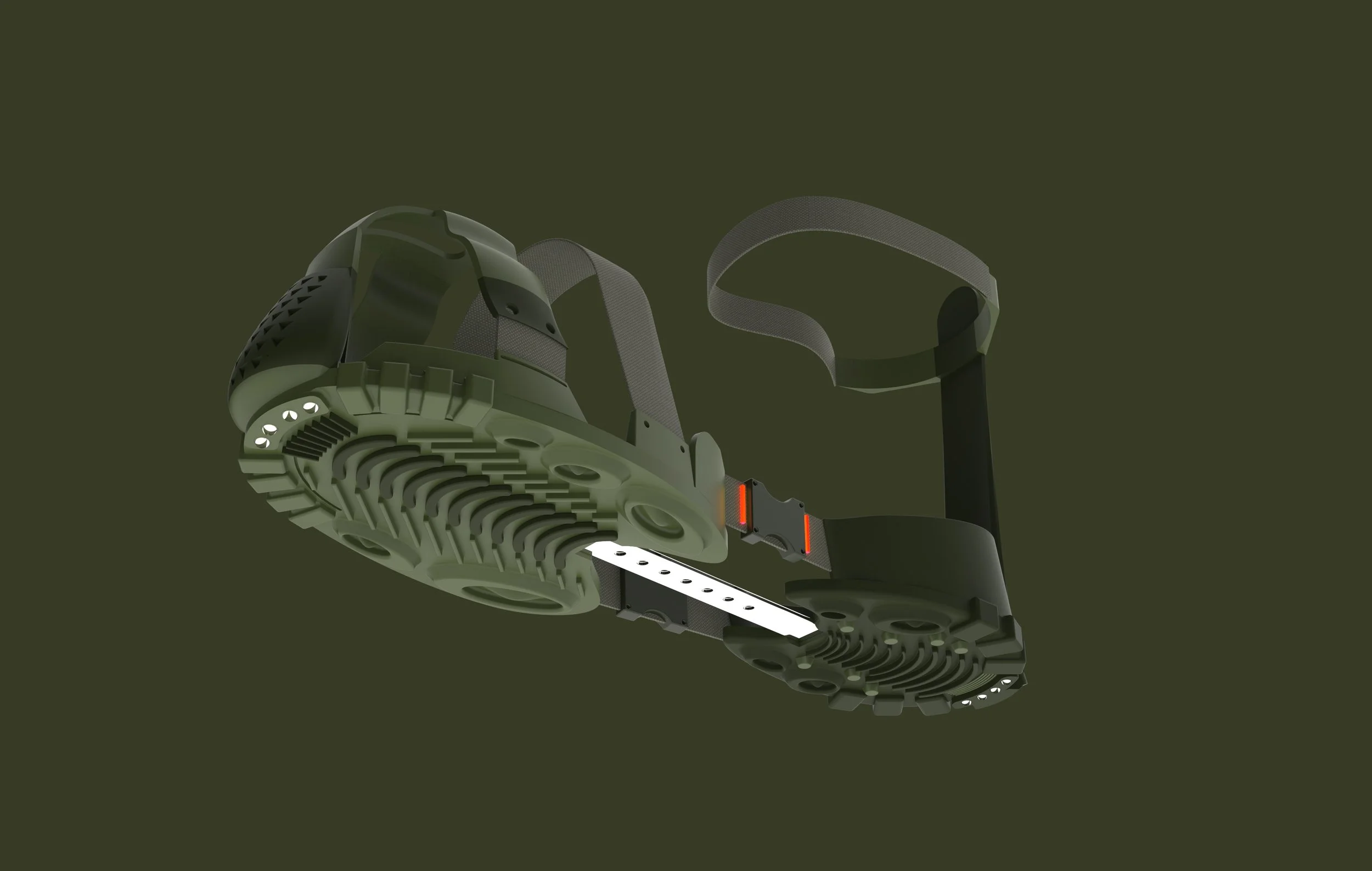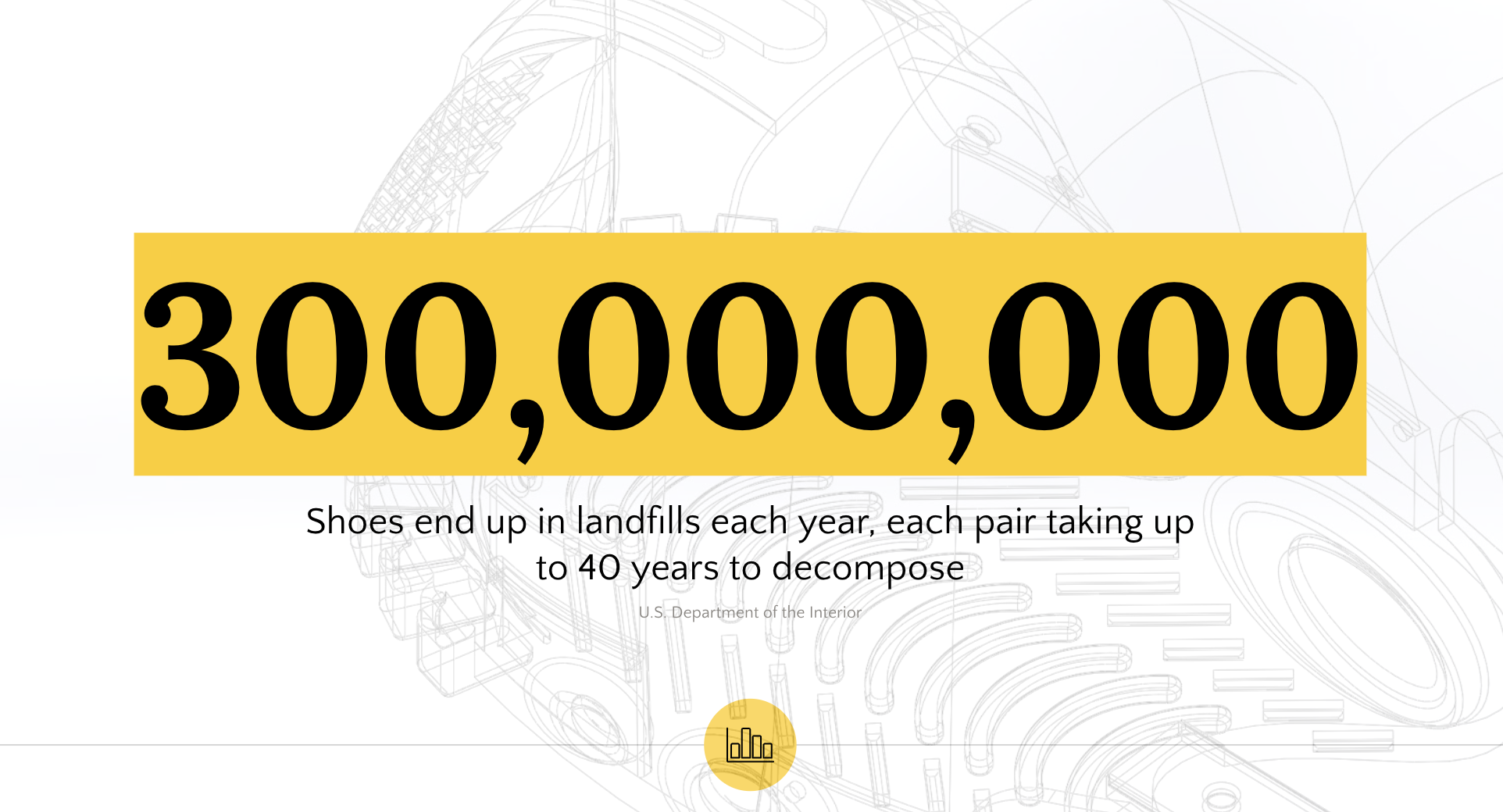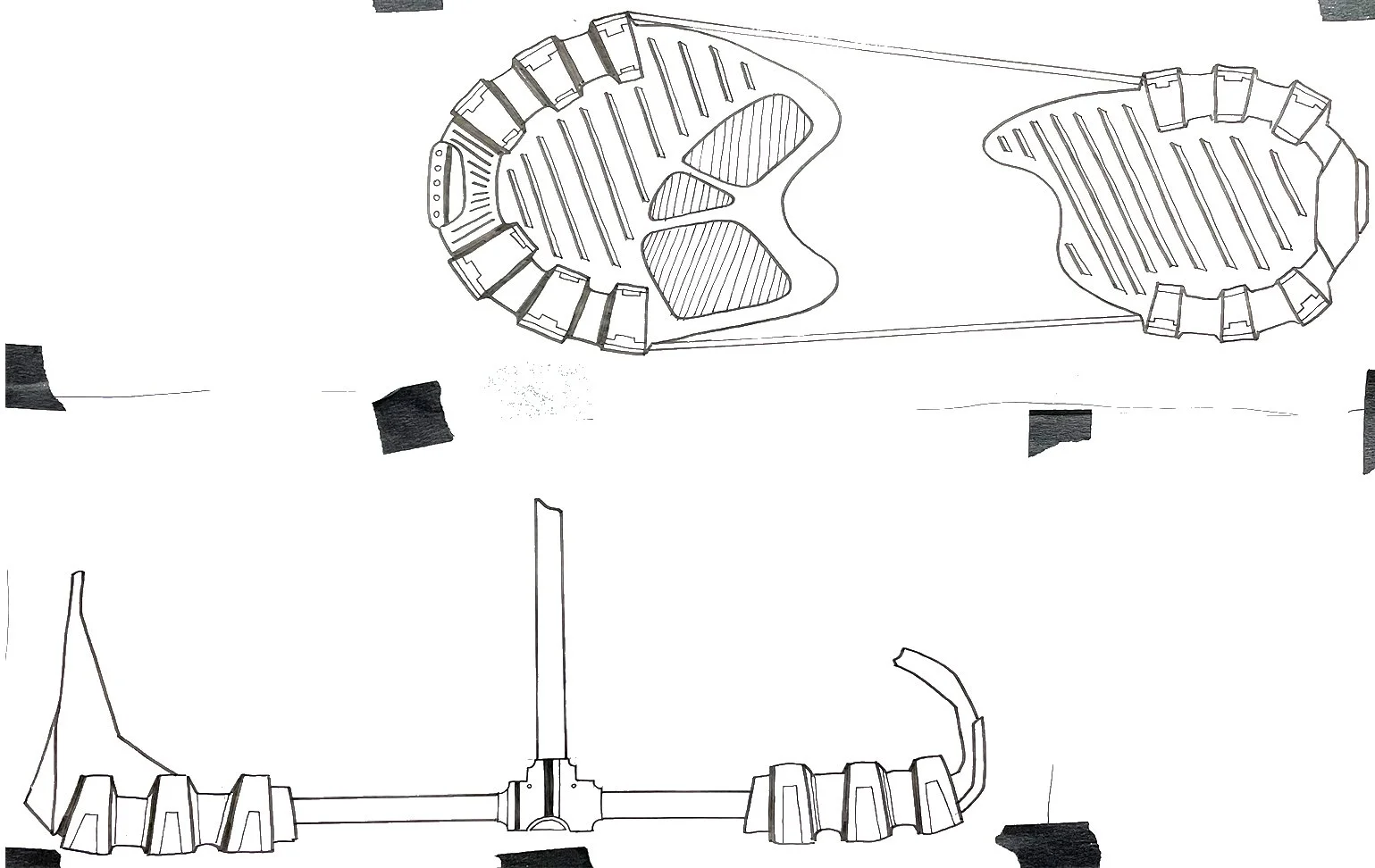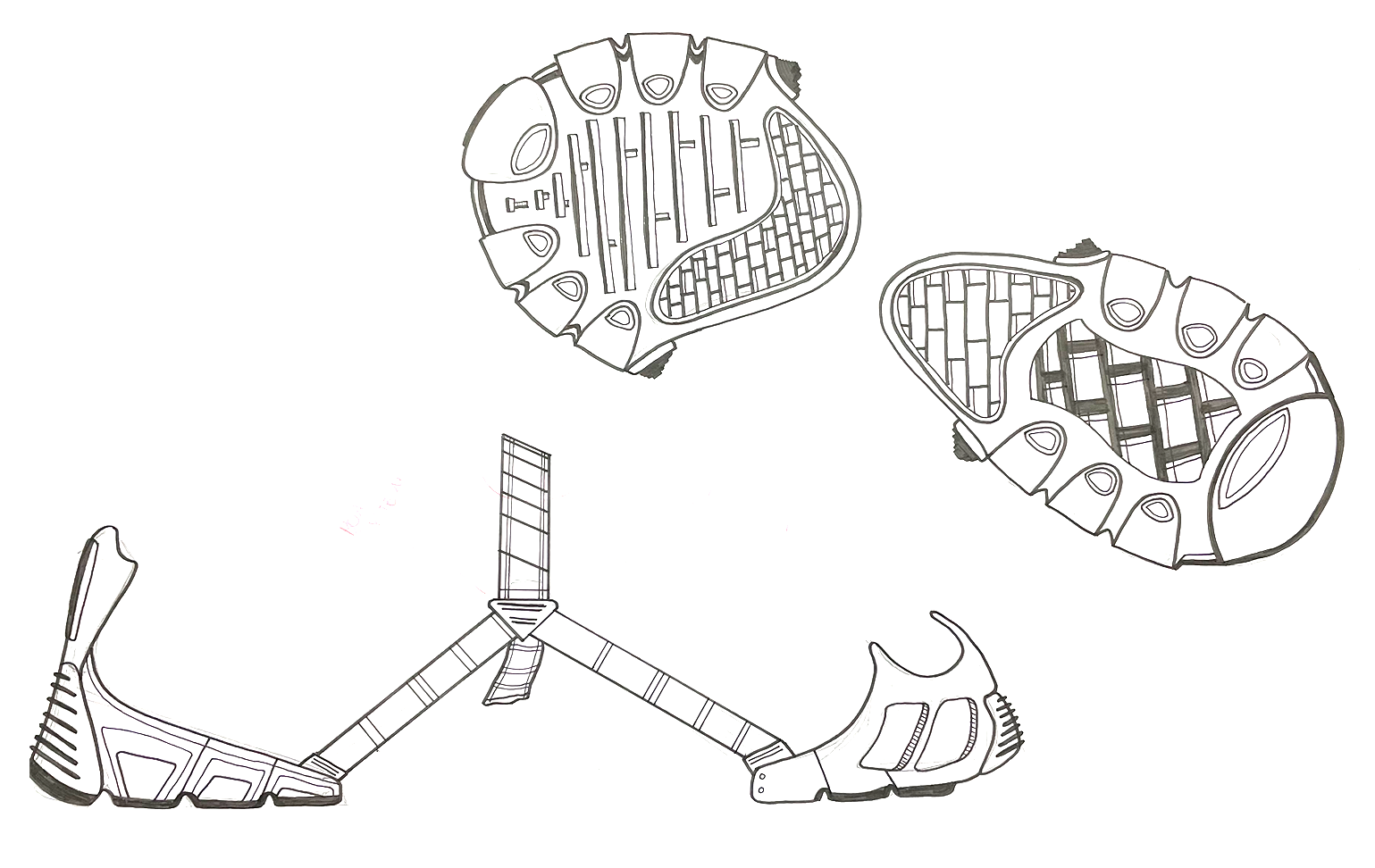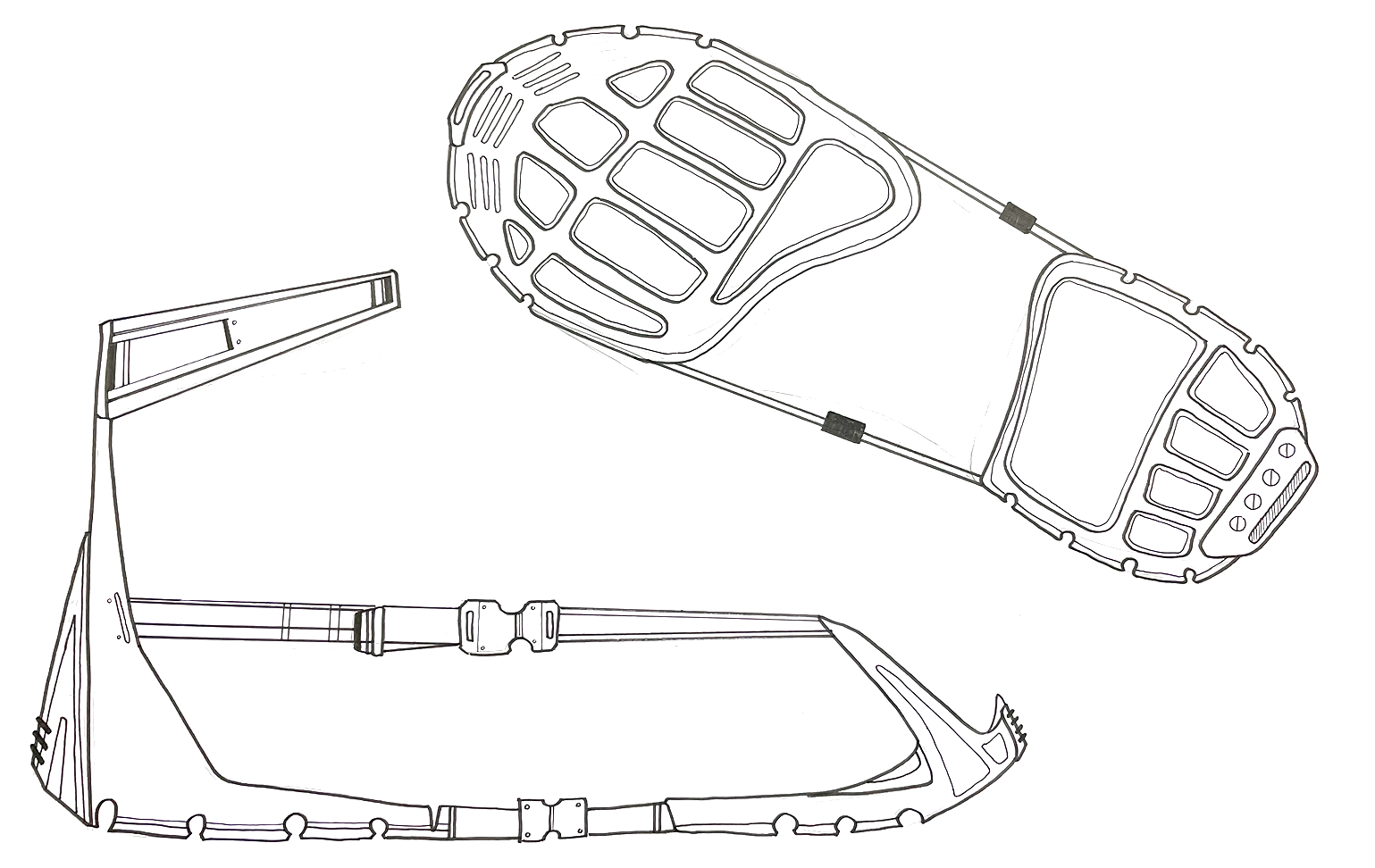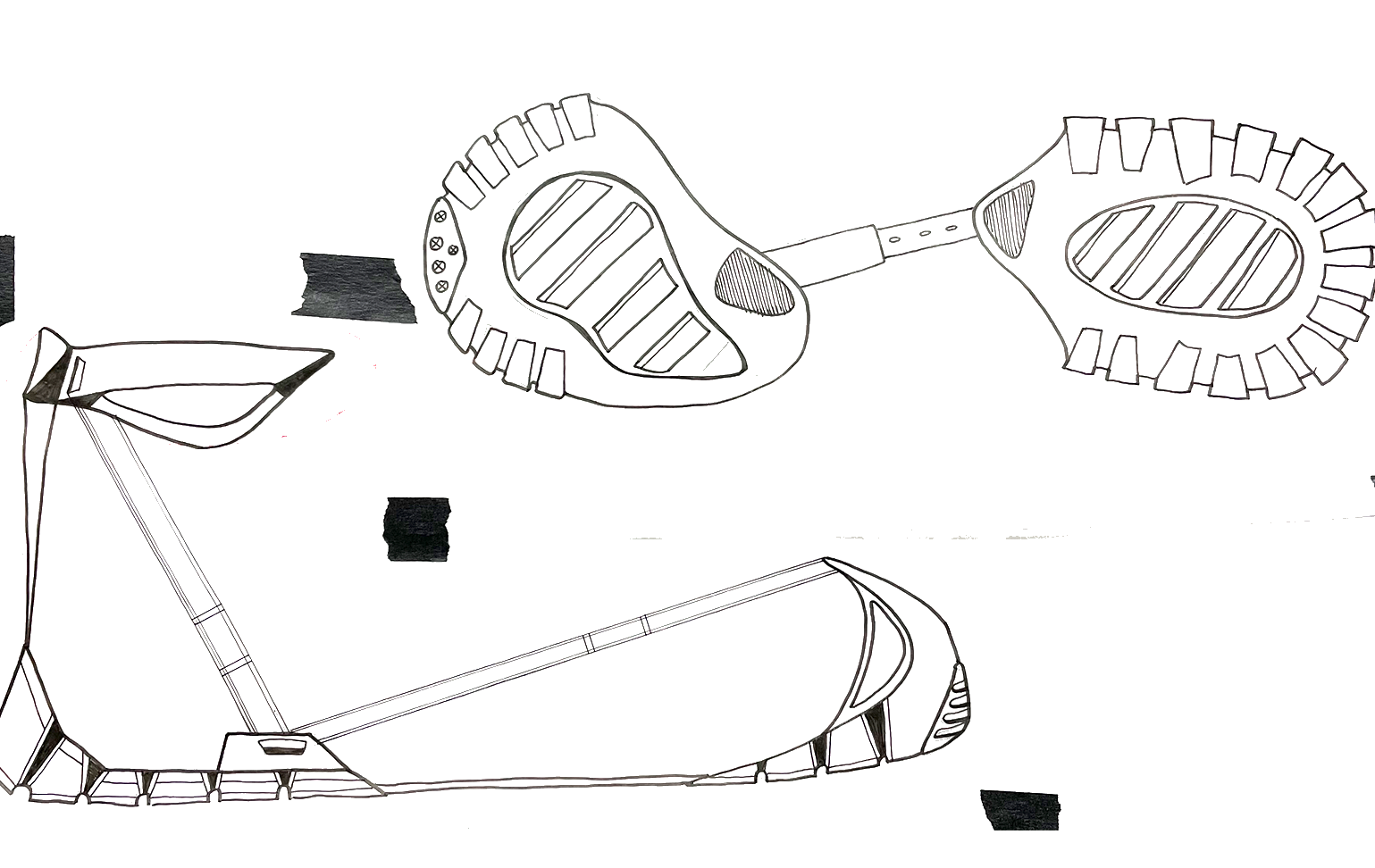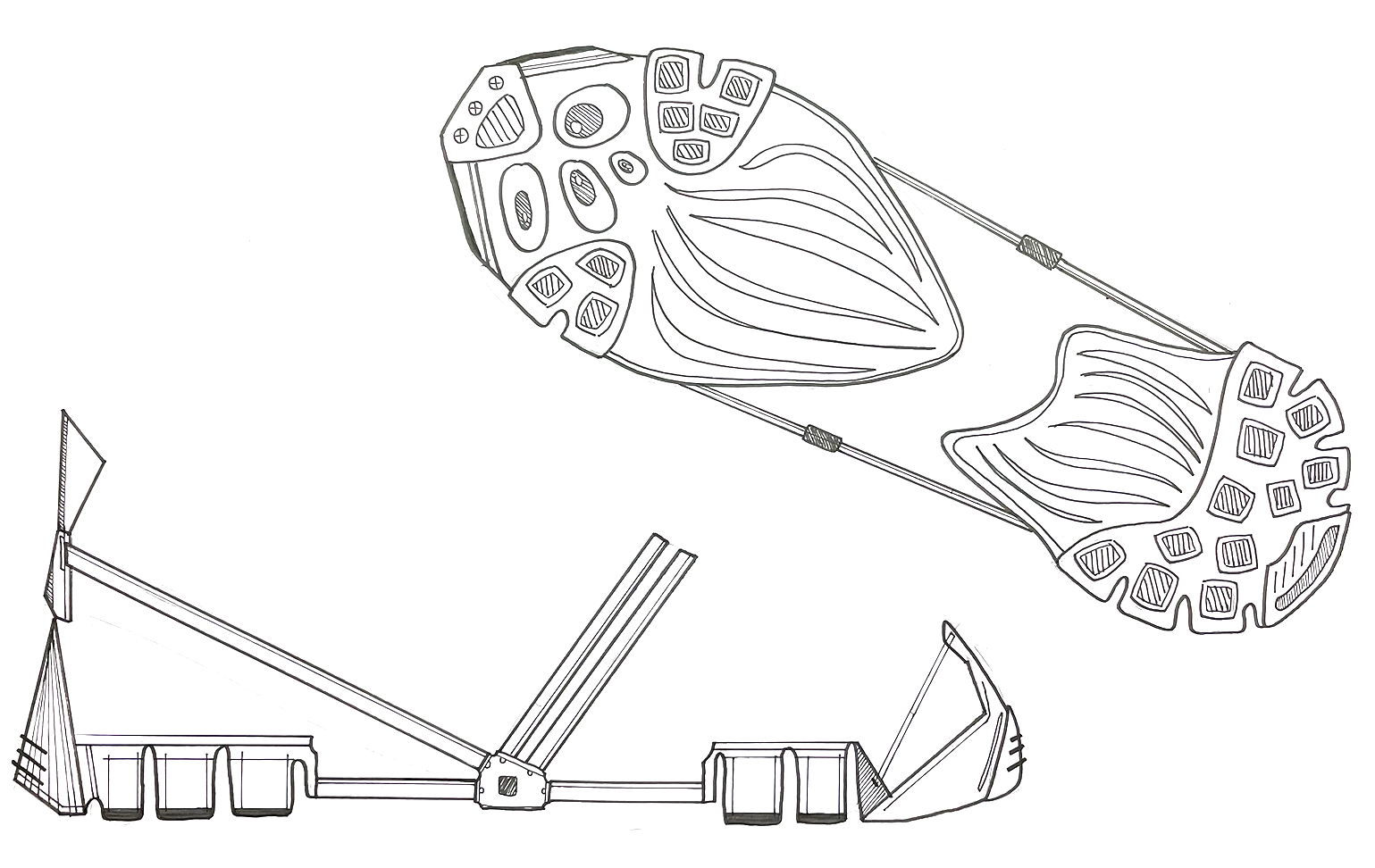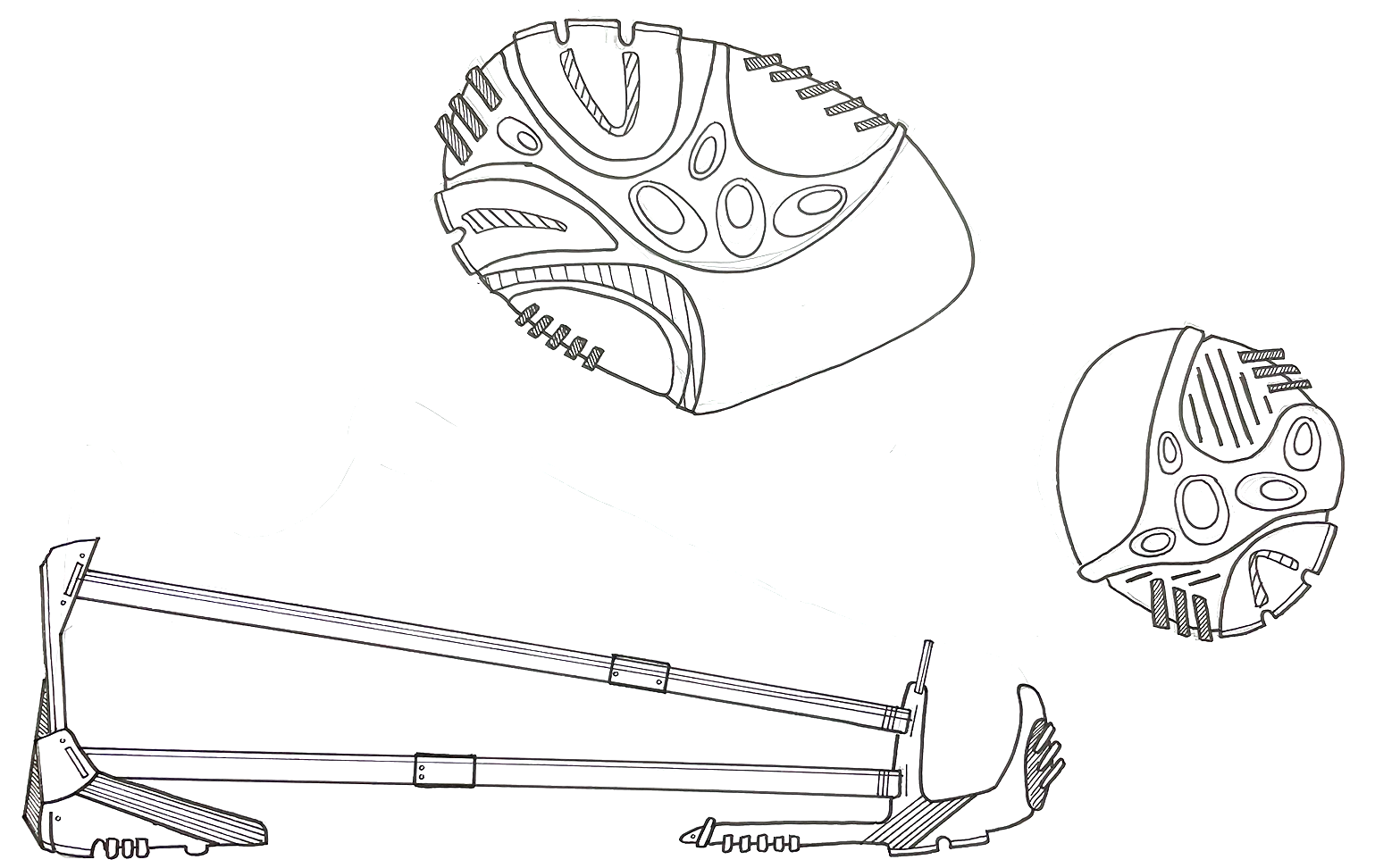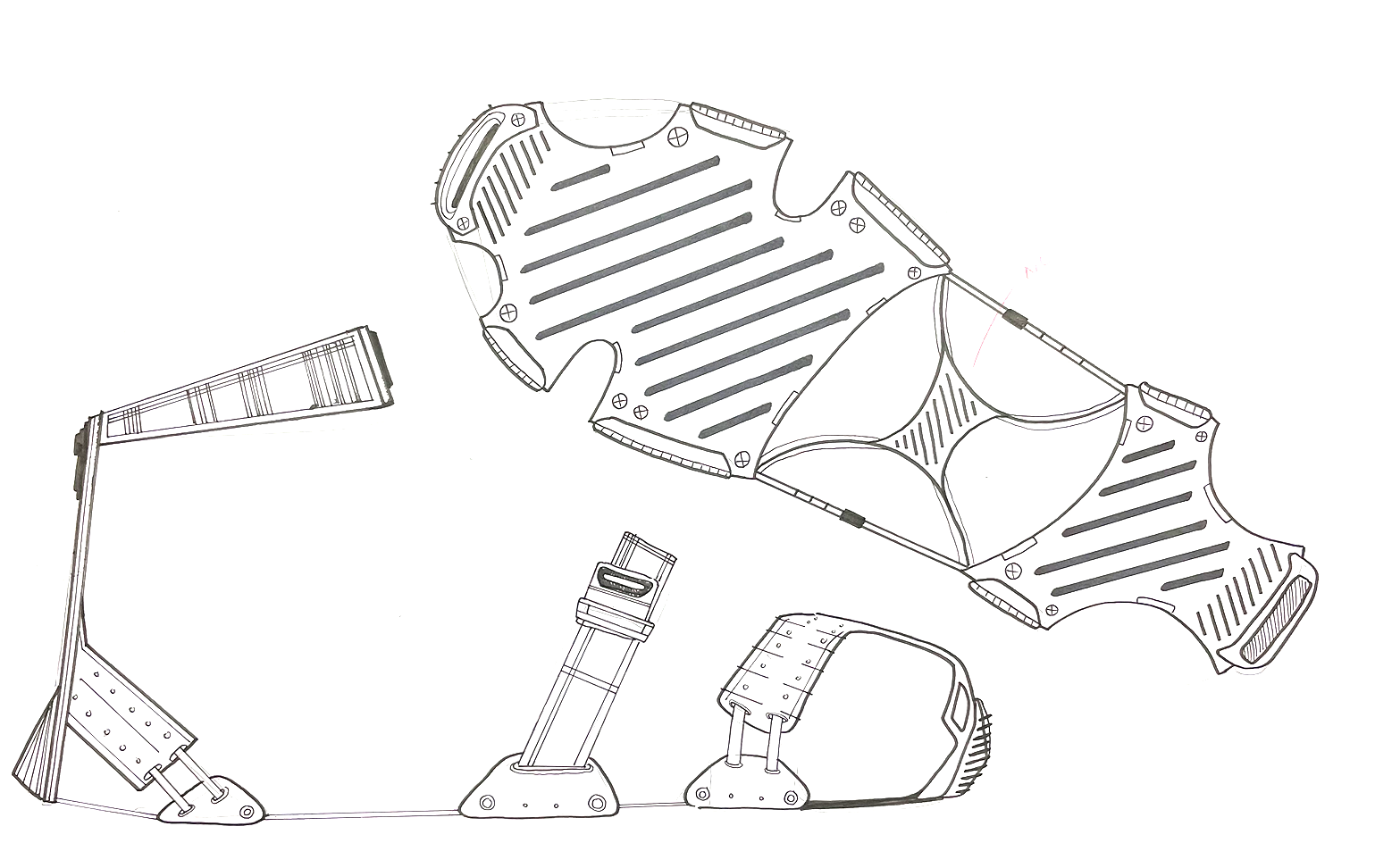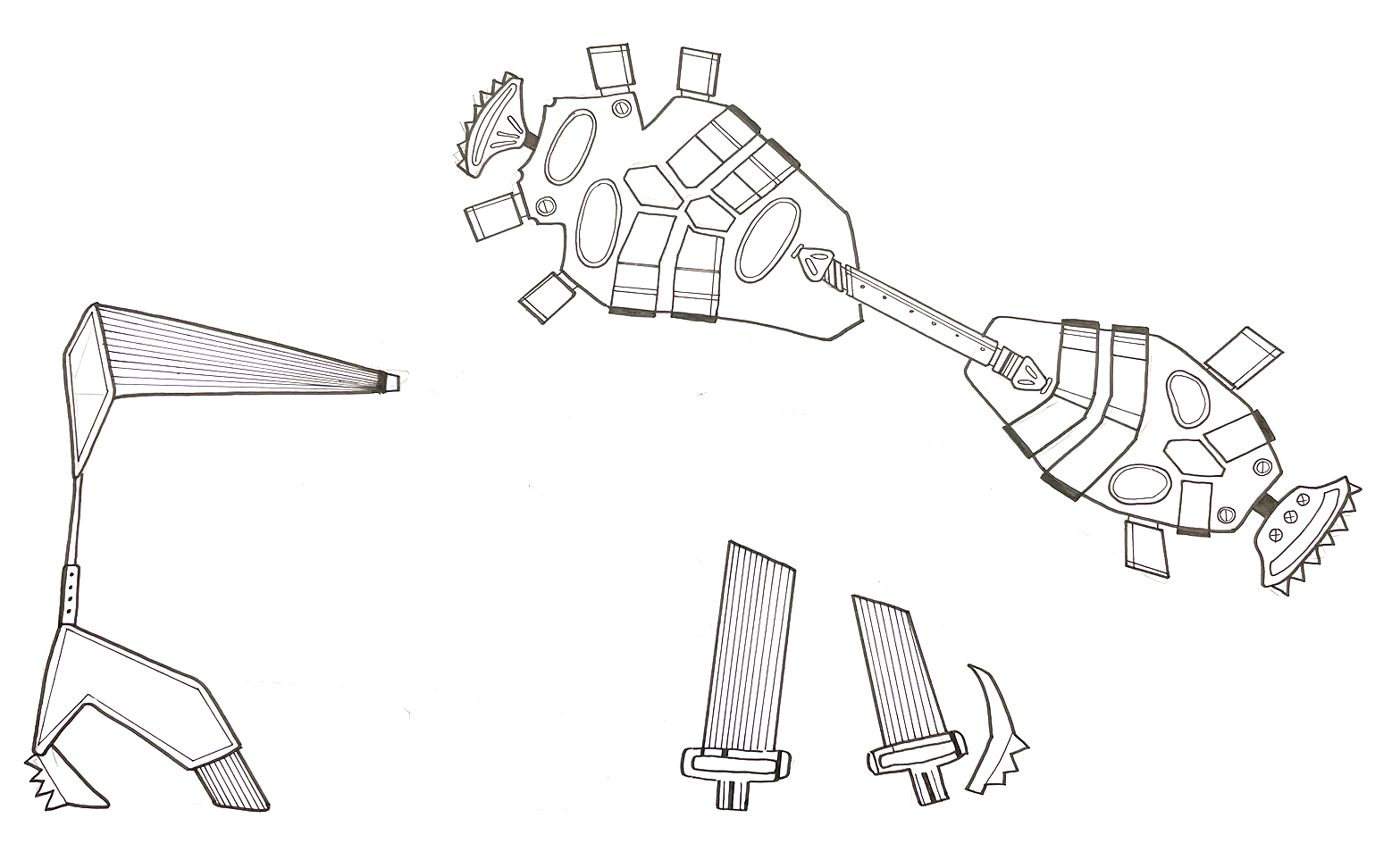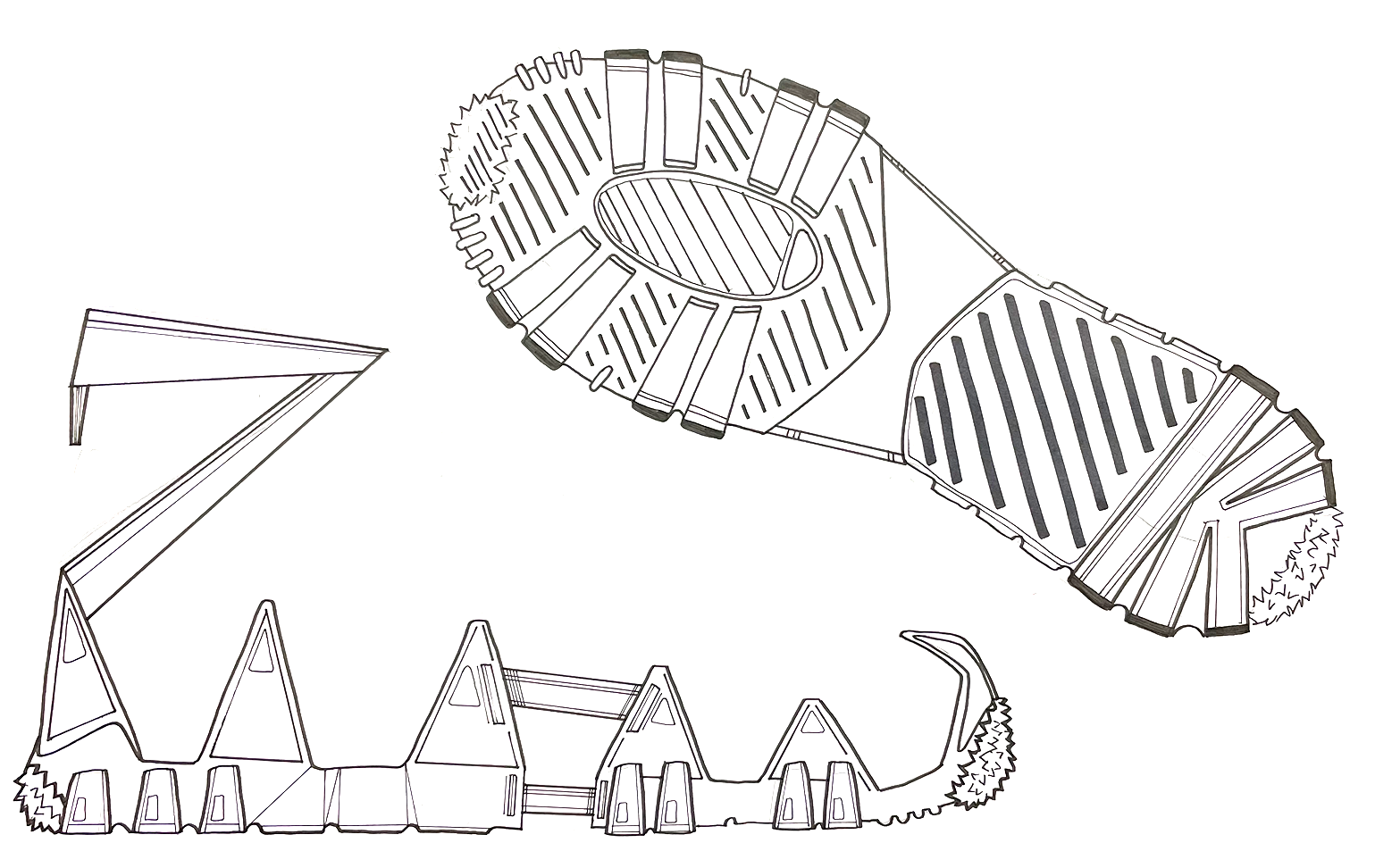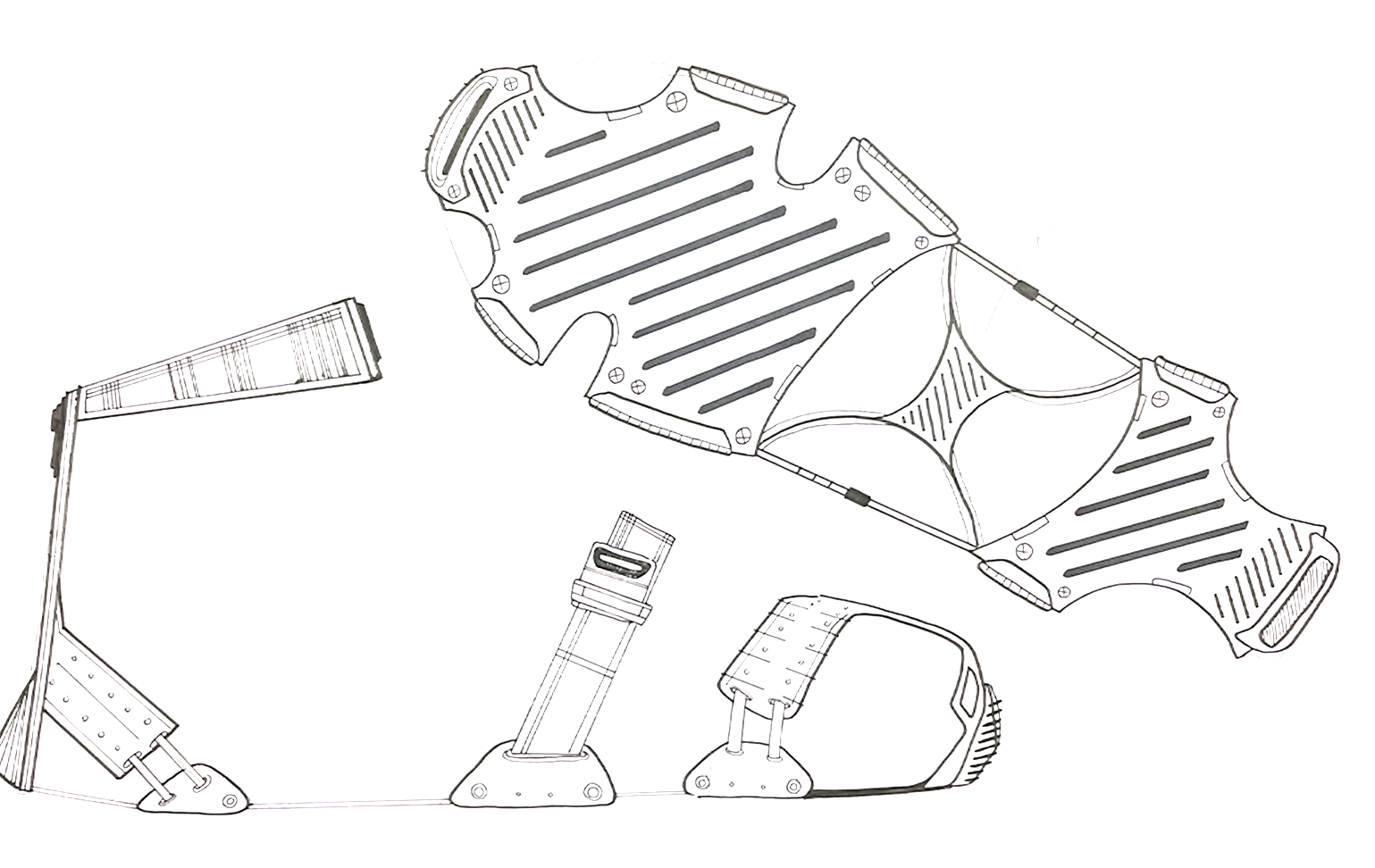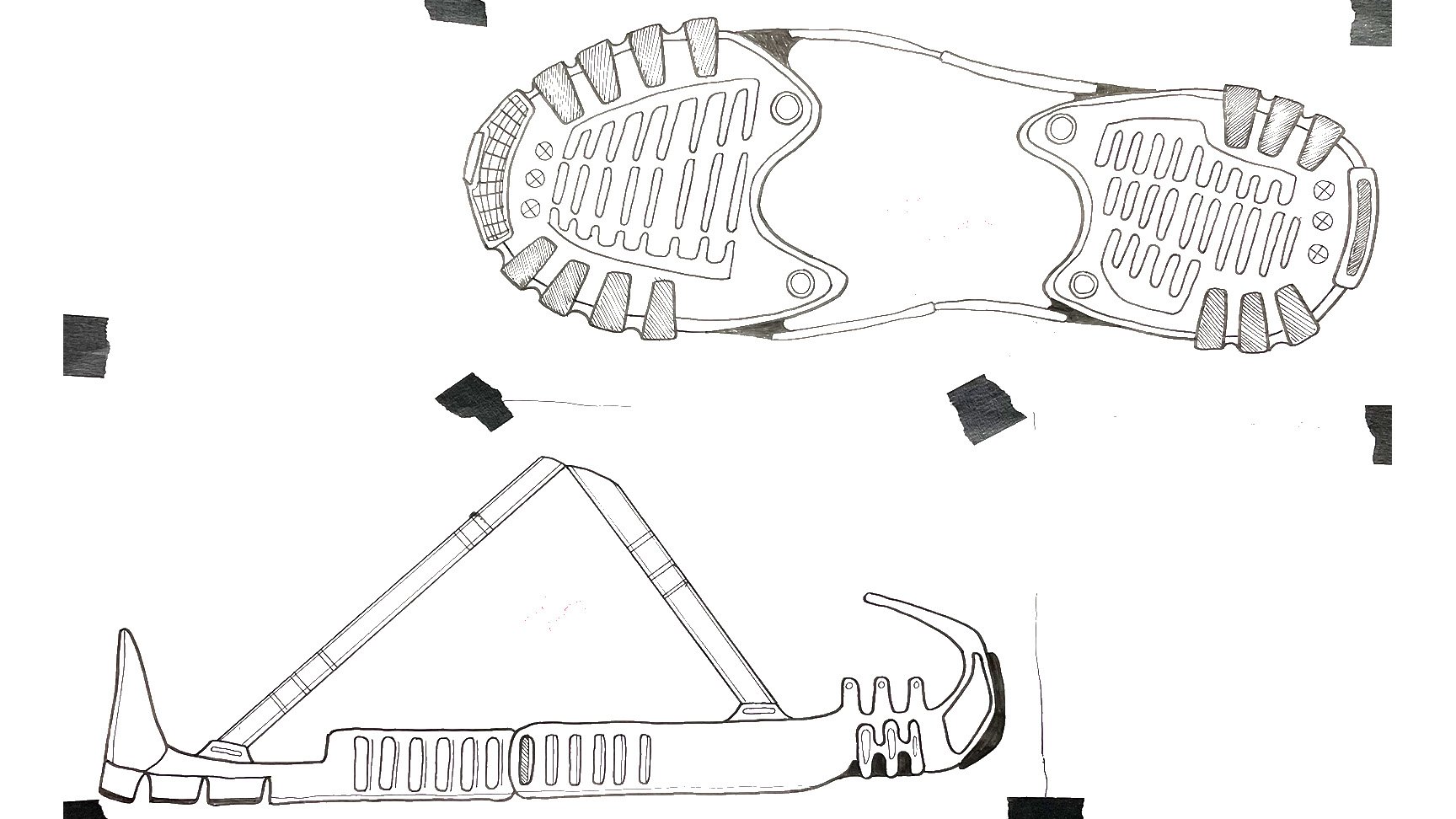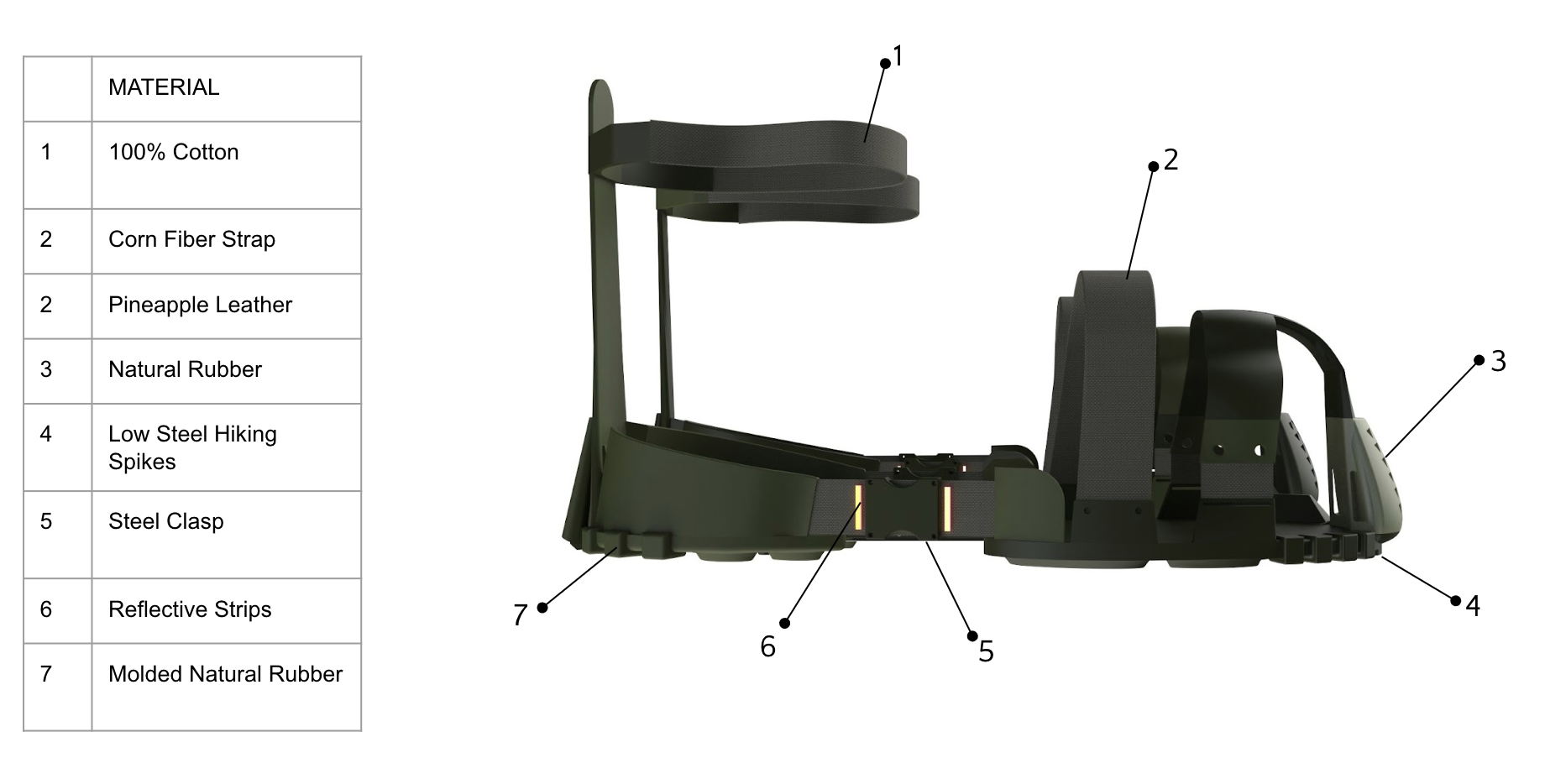Footprint
Project Brief: How can we come up with a sustainable solution to tackle a problem presented by targeted users? Identify who you are designing for, the scope and context of your proposed problem, and address how you will go about proposing and creating an inventive solution.
Materials: Solidworks, Keyshot, Adobe Illustrator, Adobe Photoshop, FIGMA
Time: Spring 2022, 5 Weeks
Class: Sophmore Spring, Design Principles II
Professor: Joseph Napurano
Footprint is a sustainable, safety-enhancing alternative to expensive and bulky hiking shoes.
Who: Amateur/ Casual Hikers
What: Ultra-traction, sturdy, sustainable hiking shoe cover
Why: Lengthen the lifetime of sneakers, increase safety, promote inclusivity
How: Formed using rugged outsole lugs. Made using rice husk and biodegradable plant-based plastics and rubbers
Design Brief
Inspo
Materials
User Feedback
Concept Development 1:
User Feedback 1
User 1: Prefers multiple forms of attachment to feet with a slim, two-piece sole structure
User 2: Prefers secure foot attachments and for the outsole to reflect the terrain of the trails
Takeaways:
I examined the problems present in the first round of iteration and explored multiple points of attachment, ankle supports, and more rugged treads.
User Feedback 2
User 1: Would appreciate ankle supports and a unified form language where a rugged sole integrates itself into the upper
User 2: Appreciates the toe cup and would like thicker attachment straps
More Ideation —>
Prototyping + Model Making —>
This exploration dove into the structure and mechanisms present in ice skating ankle supports as well as the siping and tread in hiking sandals. I then went on to CAD and 3D print a unique, ultra-rugged tread with an exploration of an adjustable connection.
Rendering —>
The final result ties in a rugged tread with secure upper attachment straps. The design intends to put safety as first priority: including reflective strips, steel spikes, and a natural rubber tread.
The “Trail Marker” plays with the same design choices but features a bright yellow color way.
Material Decisions:
How can we lessen our environmental footprint with “Footprint”?
By using sustainable and natural materials, Footprint can be fully disassembled and recycled/ biodegraded.
User Centered Design Final Project | Design Principles II | Spring 2022
Professor: Joseph Napurano
Materials: Solidworks, Keyshot, Adobe Creative Suite, FIGMA, 3D Printing, Ice Skates, Hiking Boots, various attachment mechanisms
